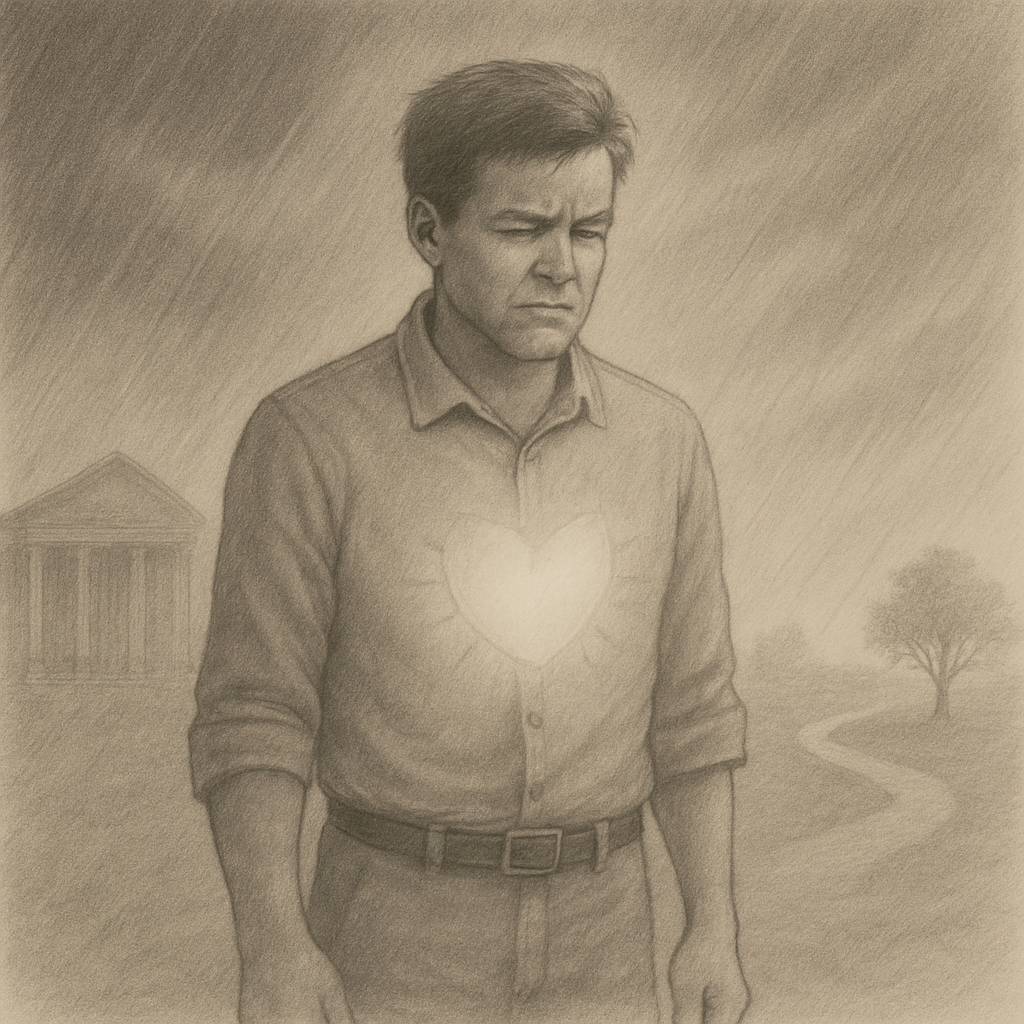When Anger Speaks — A Message From the Body
Anger is not the enemy. It’s not a flaw in your character, or a failure to be calm. Anger is a messenger — a signal from your nervous system that something is not right.
In relationships, especially those where love was once present, it can feel like a deep emotional contradiction when the very person who was supposed to care for you ends up hurting you. That contradiction doesn’t just create sadness — it can spark fury. When you're facing false claims in family court, being alienated from your children, or told by professionals to "just stay calm" while your world feels like it’s falling apart, the sense of injustice can ignite something primal.
That’s not dysfunction. That’s the nervous system doing its job: protecting you.
Anger, in its rawest form, is about protection. It’s your body saying, “No. That was not okay.” It’s the internal alarm system going off to say that boundaries have been crossed — emotionally, psychologically, or physically. Just like a dog who gets kicked repeatedly and eventually bites back, anger is not proof that something is wrong with you. It’s proof that something has been done to you. It’s a defence.
But here's the catch: when anger is expressed in ways that harm others or ourselves — yelling, aggression, revenge — it can backfire, especially in systems like family court that penalize emotional expression, particularly from men. And so, many people try to hold it in. They bury it, suppress it, pretend they’re fine.
This doesn't work either.
As Gabor Maté writes in When the Body Says No, repressed anger doesn’t vanish — it turns inward, building silently over time into chronic stress, illness, and emotional breakdown. Not expressing anger may seem “mature” or “safe,” but it's actually dangerous. It cuts us off from our body’s natural boundary system. Anger, when expressed in healthy, appropriate ways, is what enforces protection — it tells others where we begin and where we end.
The problem is that we’re living in systems that punish emotion. Family courts, child interviews, mediation sessions — they all say they want cooperation, calmness, and logic. But they leave little room for what it means to be human in a moment of betrayal, loss, or fear.
And when we're told to "just calm down" while no one seems to understand the depth of what we've lost — a child, a future, a sense of safety — it only fuels the anger further. Then comes the shame. Why am I so angry? What's wrong with me?
There’s nothing wrong with you.
If you’ve been wronged, hurt, lied about, pushed aside — you are allowed to feel the way you do. Anger is not something to fear or punish yourself for. It is simply your body saying: This is not okay.
Where people go wrong is when they let anger control their actions. When anger turns from protection into punishment, we begin to lose ourselves. Seeking revenge, trying to control the other person, hoping they'll suffer the way we did — that’s when anger becomes destructive. It may feel powerful in the moment, but it rarely brings the peace we’re really searching for.
In relationships, we see this all the time. One person gets hurt, and the other lashes out. It's reaction, not reflection. Some people regret it. Some bury it in shame and avoid repair. Others double down and believe they’re justified. But secure, emotionally mature people learn to pause. They learn to hold anger without letting it take the wheel. They can say, “That wasn’t okay,” without destroying the relationship or themselves in the process.
And if you're healing from a breakup or high-conflict separation, it's important to know: you can be angry and still act with integrity. You can speak up without tearing someone down. You can set boundaries without burning bridges.
Violence, yelling, or manipulation may get short-term responses from a partner, but they never build long-term trust. I've seen it in countless relationships — one partner gets angry every time they're approached for help, and over time, the other partner just stops coming to them at all. When someone reacts with rage every time there's a mistake, they unconsciously send the message: I am not safe to come to. That dynamic slowly kills connection.
The kind of relationship most people dream of is one where both people can grow — individually and together. One where mistakes aren’t punished, but met with understanding. A partner who says, “You messed up. It’s okay. I’ve got your back.” That’s what emotional safety looks like.
But when we feel threatened — by someone else’s choices, mistakes, or perceived disloyalty — we often respond by trying to control them. We think if we can shape the other person’s behaviour, we’ll feel safe again. But that’s not love. That’s fear. And we don’t want to be controlled ourselves, yet we try to control the people we love the most.
When we’re in fight-or-flight after a breakup or court battle, we’re not thinking clearly. We’re reacting. And even after separation, anger often lingers. You may still get angry seeing how your former partner chooses to live their life. But here’s the truth: if they’re no longer in your life, it only affects you because you let it. Your peace can’t depend on their choices.
Still, I won’t pretend this is easy. It's not as simple as “just move on.” What’s more helpful is to feel what you're feeling — not to rewrite the past, but to process it without getting stuck in it. If you’re replaying events in your mind, ask yourself: Am I learning something here, or just reliving pain?
Healing means letting go of the need to control what can’t be controlled. It means letting your former partner be who they are — even if it hurts — so that you can focus on becoming who you want to be.
